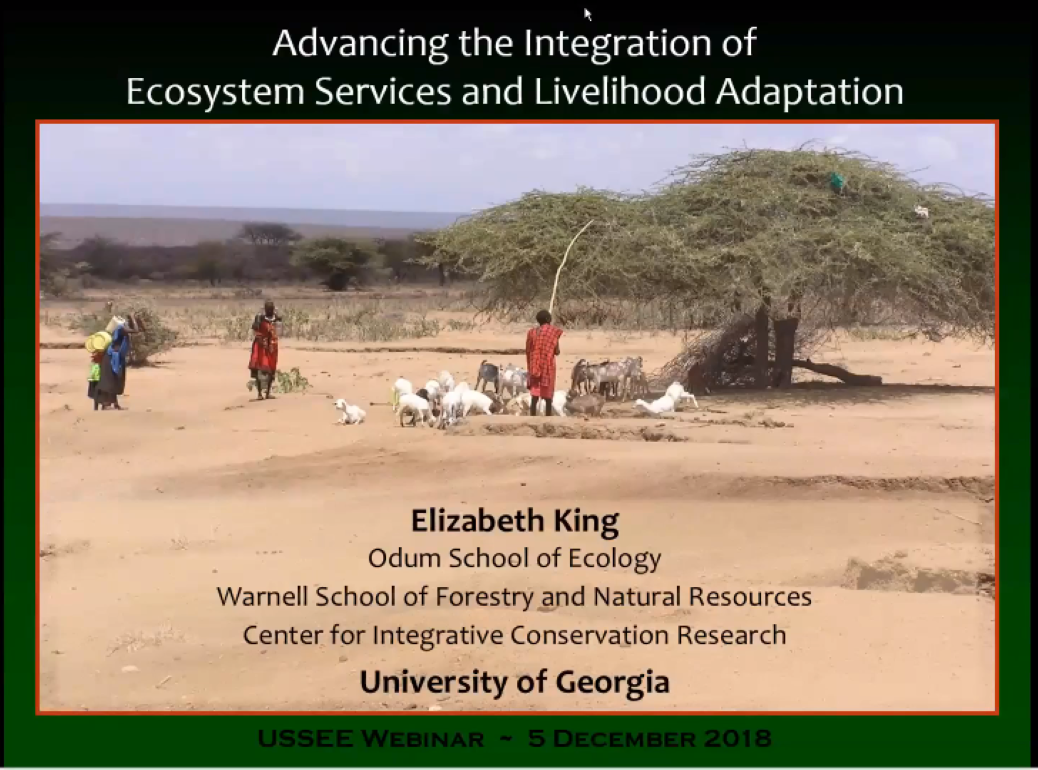
Lizzie King Webinar Recording Available
Advancing the Integration of Ecosystem Services and Livelihood Adaptation
Presented by Lizzie King for the United States Society for Ecological Economics Webinar Series.
The concept of ecosystem services has become a cornerstone in dialogues and policymaking in conservation, natural resource management, and sustainable development. Most methods for ascribing values to the benefits provided by ecosystems are based on a conceptual “flow model” in which natural capital yields services, which in turn yield valued benefits to people. However, in sectors such as rural development and urban planning, there are increasingly vocal criticisms of outcomes that arise when decisions based on optimizing ecosystem services are put in to practice.
In this talk, I will examine two limitations of mainstream conceptualizations of ecosystem service flows, and some methodological tools and cutting edge research from other disciplines that can help overcome those limitations. The first limitation is a failure to account for the range of capabilities that people need in order to co-create ecosystem services, and the second is a failure to formally consider how the benefits and values are distributed among members and segments of society. Principles from Sustainable Livelihood Analysis and the nascent field of adaptation studies can complement ecosystem service analyses and valuations to give more holistic and realistic understandings of ecosystem service flows and who benefits from them.